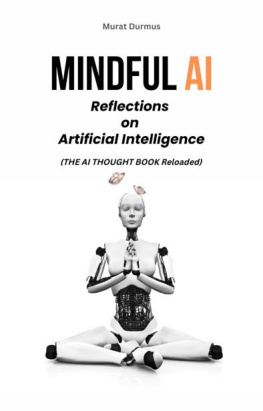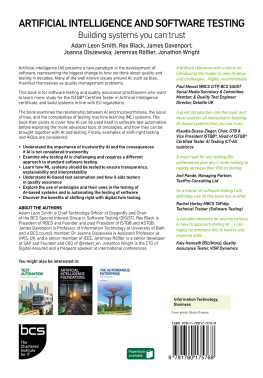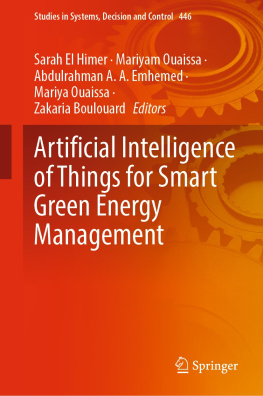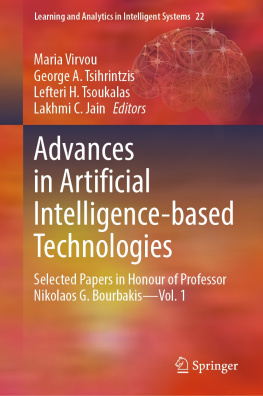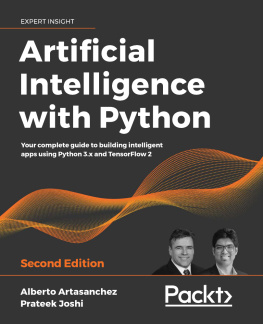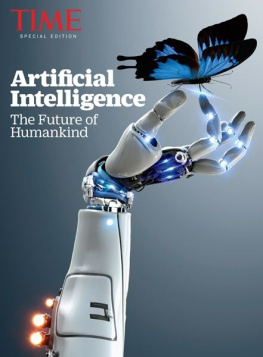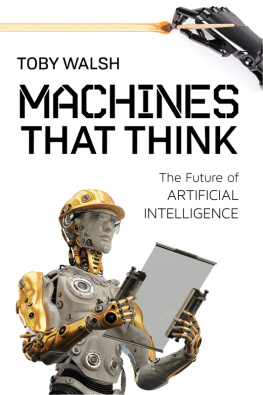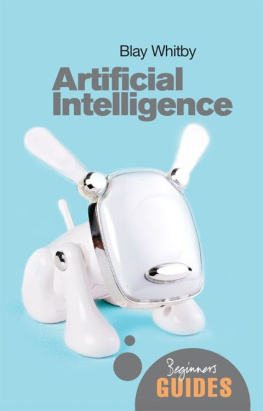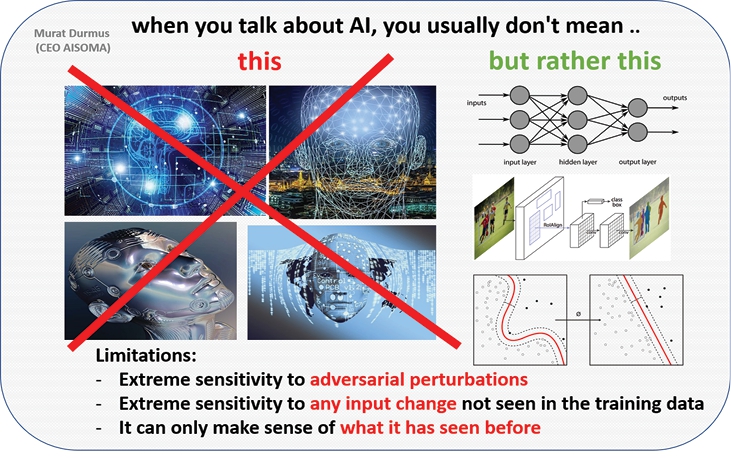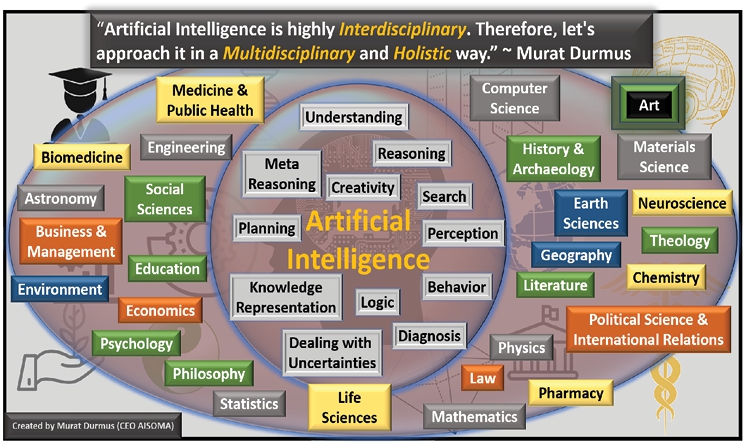About the Author
Murat Durmus is CEO and founder of AISOMA . A Frankfurt am Main (Germany) based company specialized in AI-based technology development and consulting. Besides being an entrepreneur, he devotes most of his time to philosophy and AIs impacts on society.
You can get in touch with him via
LinkedIn: https://www.linkedin.com/in/ceosaisoma/
E-Mail:
or follow on
Twitter: https://twitter.com/CEO_AISOMA
Copyright 2021 by Murat Durmus - All rights reserved. No part of this publication may be reproduced, distributed, or transmitted in any form or by any means, including photocopying, recording, or other electronic or mechanical methods, without the prior written permission of the publisher, except in the case of brief quotations embodied in critical reviews and certain other noncommercial uses permitted by copyright law.
for
Aynur, Emre & Esra
- my sources of inspiration -
Quotations are drops of thoughts that sometimes reach deep into our soul and give us insights that a hundred books cannot.
Preface
I am sitting in front of my notebook and trying to write a preface. After all the thoughts and quotes I have written over the last years, Im struggling with the words. Honestly, I had never thought of writing a book about my neurons and souls outpourings on the subject of AI. However, the response and feedback on social media (mainly LinkedIn and Twitter) and some of my friends desires were so positive that they finally convinced me to publish it. Congratulations, now you have it in your hands or reader.
Even as a little boy, I was very fond of snippets of thoughts and quotes. I can remember how I devoured Marcus Aurelius Meditations, and they still inspire me after more than 20 years. They make me think and give me the feeling to penetrate related topics much more in-depth. For me, quotes are like drops of thoughts that sometimes reach deep into our souls and give us insights that a hundred books cannot.
If this book inspires you or makes you look at the subject of artificial intelligence from different angles, then it has served its purpose in spades and at the same time made the author one of the happiest people in this world.
Enjoy while reading, and hopefully, it provides you with loads of inspiration and insights.
Murat Durmus - Frankfurt am Main (Germany), March 2021
Artificial Intelligence
~ * ~
I have done a terrible thing. I have demystified Artificial Intelligence.
~ * ~
Recognizing that two points of data are connected is not enough. The System must ask why one point affects another.
~ * ~
Artificial Intelligence is not a new wave of technology. It is much more like a Tsunami that threatens to flood us if we are not mindful.
~ * ~
AI is a branch of philosophy and not of computer science.
AI is not a revolutionary but a transforming technology.
We have only seen & experienced the tip of the iceberg in terms of AI.
AI is an accelerator of evolution.
AI makes us seriously ask the question of what it means to be a human.
~*~
Progress
What worries me a bit is that we dont know the current state of AI progress. New heights and approaches are reported and published almost daily from all parts of the world. Hardly any area seems to be untouched. Sure, we all want progress, but really at any cost? I think a little more humility in the development of AI would do the whole thing well; otherwise, the whole thing threatens to overwhelm us one day, and we will no longer be able to correct it, let alone control it.
~ * ~
Robustness
The foremost question we should always ask ourselves when we get serious about AI:
How can we make artificial intelligence systems that are robust in the face of lack of knowledge about the world?
~ * ~
Artificial Intelligence is highly Interdisciplinary . Therefore, lets approach it in a Multidisciplinary & Holistic way.
~ * ~
Multidisciplinary
The lack of domain-specific knowledge when designing AI Models:
One of the main reasons many rely on black-box models is not the models accuracy and performance but merely the lack of domain-specific knowledge. The problem could be solved by training more experts in a specific domain such as medicine, biology, psychology, pharmacy, marketing, etc., to Data-Scientists or ML-Engineers. At least to the extent that they can evaluate the whole and adapt it if necessary. There are already some, but it needs to be challenged and promoted much more. We can only benefit most from AI if we approach it in a multidisciplinary way.
~ * ~
Robustness
Robustness of Artificial Intelligence Systems:
Steadily increasing technological advances in artificial intelligence encourage more and more businesses and governments to deploy AI in high-stakes environments, including autonomous driving, diagnostics in medicine, managing the power grid, and controlling autonomous weapons systems. For such applications, AI methods must be robust to both the known unknowns (the uncertain aspects of the world that the computer can reason about explicitly) and the unknown unknowns (the elements of the world that system models do not capture). Thus, we need to pay more attention to the challenges of dealing with both known and above all the unknown unknowns. These issues are essential because they address the fundamental question of how finite systems can survive in a complex and dangerous world and, above all, thrive for the benefit of humankind and nature.
~ * ~
From pre-existing bias to biased datasets to the emergence of unpredictable correlations;
The reasons are manifold.
It will still take a while for AI to reach a certain level of maturity.
~ * ~
Brute-Force-AI
Did you know that GPT-3 has trained on 8 million text documents (data that reflect biases that occur in the real world) scraped from the web, and it cost $12 million in electricity to train it?
I call such an approach: Irresponsible Brute-Force-AI
AI for AIs sake is a nearly-guaranteed path to disaster!
~ * ~
Uninterpretable (Black-Box) algorithms should only be used for knowledge discovery processes and not for decision-making.
~ * ~
Race of AI
The question of who will win the race and dominate AI in the future is primarily not about who has the leading companies or produces the cutting-edge innovative technology in this sector. It is rather about who has companies that can quickly take over the breakthrough algorithms/technologies and adapt them to processes that create real economic (and hopefully sustainable) value.
~ * ~
The adoption of Artificial Intelligence must be done holistically and not in fragmented components that are not fully integrated into the Organizations.
~ * ~


